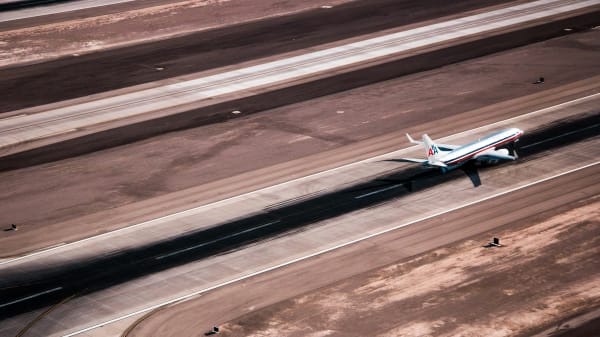The Rise of Cargo Drones and Their Career Impact
As we zoom into the future, technology continues to take unprecedented strides ahead. One fascinating manifestation of this trend is the rise of cargo drones. You may be familiar with this technology thanks to Amazon's exploratory forays into drone package delivery. However, behind the scenes, the cargo drones industry is growing rapidly and changing the landscape of logistics, supply chain, and transportation. The career impact for those with an interest in this field is vast and growing.
In this post, we'll dive into the exciting world of cargo drones and explore how they're creating new career opportunities globally. We'll also look at the skills required and the potential salary expectations for some rising roles within the cargo drones sector.
What Are Cargo Drones?
Before diving into the new job opportunities, let's clarify what cargo drones are. Cargo drones, or unmanned cargo aircraft, are automated or remote-controlled vehicles designed to transport goods. They come in different sizes, with some able to carry a few kilograms and others capable of ferrying hundreds of pounds. These drones are faster, more efficient, and can access remote or perilous locations, transforming how goods are delivered worldwide.
The Rise of Cargo Drones
So, why is there a sudden buzz about cargo drones? Well, there are several reasons.
Technological advancements: The rapid advancements in AI, automation, and drone technology have significantly reduced the cost of using drones and increased their capabilities.
Greater efficiency: Drones can leapfrog traditional road and air logistics barriers like traffic, terrain, and rigid delivery schedules.
E-commerce growth: The rise of e-commerce giants like Amazon and Alibaba is spurring a demand for faster delivery times. Cargo drones offer a viable solution to meet this challenge.
Emergencies and humanitarian needs: In disaster-prone or remote areas, drone technology can deliver essential supplies quickly and safely.
Impact on Careers
With the rise of cargo drones comes a vast wave of new job opportunities. If you're interested in drone technology, here are some career avenues to consider:
1. Drone Pilot
As cargo drones are often remote-controlled, there's a growing need for skilled pilots. Drone pilots navigate the drones, ensure safe delivery of cargo, and troubleshoot issues during the flight. The average salary ranges from $50,000 to $100,000 per year.
2. Drone Software Engineer
These professionals are tasked with developing and maintaining the software that runs cargo drones. They must have a solid grasp of programming languages, machine learning, and AI. The annual salary for this role can range from $90,000 to $150,000.
3. Drone Maintenance Technician
Like any piece of technology, cargo drones require regular maintenance and occasional repairs. Drone maintenance technicians are the hands-on practitioners ensuring drones stay up and fly right. The median salary is around $60,000 per year.
4. Drone Data Analyst
These roles involve analyzing drone flight and performance data to help optimize routes, speeds, and energy usage. Expertise in data mining and analysis is required, with salaries typically ranging between $80,000 and $120,000 per year.
5. Drone Logistics Coordinator
Drone logistics coordinators oversee the orchestration of drone deliveries, working with clients, pilots, and technicians to ensure smooth operations. A coordinator can earn from $40,000 to $80,000 yearly.
Skills Required
For anyone looking to enter the cargo drones careers market, the following skills are particularly in demand:
Technical skills: Proficiency in drone technology, programming, AI, and data analysis are often key.
Operational skills: Understanding logistics, supply chain management, and operations will go a long way.
Regulatory knowledge: Familiarity with aviation and drone laws and regulations would be a critical advantage.
Problem-solving skills: The ability to troubleshoot and find quick, effective solutions is essential.
Education and Certifications
While job requirements may vary, having a degree in relevant fields like computer science, electronics engineering, or logistics can certainly be an advantage. Certifications like the Part 107 Remote Pilot Certificate issued by the FAA in the US can also enhance your employability.
Conclusion
The rise of cargo drones is opening a world of opportunities not just for businesses, but for job seekers and professionals looking to break into a growing sector. Invest today in developing the right skills and knowledge to secure a future in cargo drone careers- a field set to revolutionize logistics, transport, and more. The future, it would seem, is soaring high with cargo drones.




